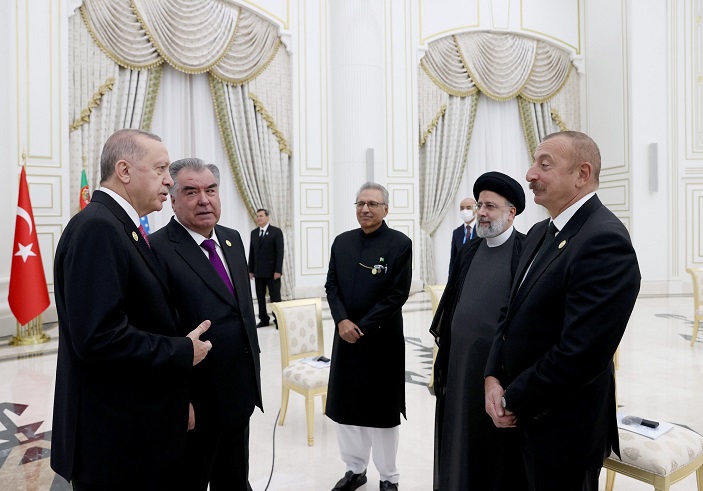ISLAMABAD: President Dr Arif Alvi has said the Economic Cooperation Organisation’s (ECO) member states, despite having all elements for economic growth, are among the least integrated in terms of trade and investment, stressing the need for unlocking their potential for growth and development.
While speaking at the 15th Summit of the Heads of State of the ECO on Sunday, President Alvi said the intra-regional trade among ECO members was only eight per cent of their total trade though the region had all the elements needed for economic integration and rapid economic growth, including rich resources, enterprising people, geographical contiguity, and a common culture and heritage.
Themed ‘Into the Future Together’, the summit was chaired by President of Turkmenistan Gurbanguly Berdimuhamedov and attended by heads of ECO member states and Secretary-General Ambassador Khusrav Noziri.
On the sidelines of the summit, the president, in separate meetings with several of his counterparts, reaffirmed resolve to boost bilateral cooperation.
In his address at the summit, President Alvi said that in order to stay competitive, national and regional economies would have to move towards greater physical and virtual integration. Such integration was imperative for the ECO region, he reiterated, adding that the theme chosen for this summit was thus most apt and timely.
He called for ensuring the implementation of ECO Vision 2025, and the Islamabad Declaration, a free or preferential trade arrangement; strengthening of regional institutions such as the ECO Trade and Development Bank (ETDB) and operationalisation of the ECO Reinsurance Company (ERC).
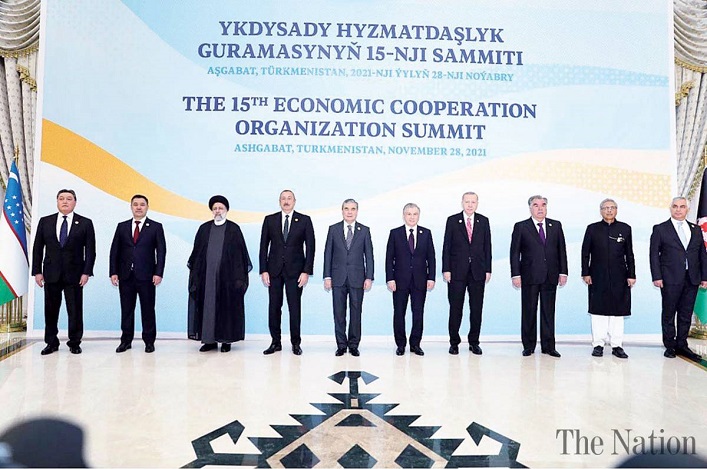
President Alvi, who reached Ashgabat on Saturday, called for advancing the transport corridors planned by the ECO under the Transit Transport Framework Agreement (TTFA). He welcomed the operationalisation of the Islamabad-Tehran-Istanbul road corridor.
Link to region’s prosperity
Calling peace in Afghanistan key to regional connectivity, he said the country after the end of a 40-year war was facing a humanitarian crisis, deepening liquidity crisis, with serious social and security implications. “We must all join hands in preventing such a disaster, which can revive chaos and conflict and the threat from terrorism in Afghanistan,” he said, adding that frozen assets of the country must be released to help alleviate sufferings of the Afghan people.
Mr Alvi said stability in Afghanistan would also enable early implementation of agreed infrastructure and integration projects: the TAPI gas pipeline; the CASA 1000 electricity grid from Tajikistan and Kyrgyzstan to Afghanistan and Pakistan; and construction of the Uzbekistan-Afghanistan-Pakistan railway line.
Recounting the economic impact of Covid-19 with disproportionate suffering of some ECO member states having a double-digit economic contraction, President Alvi said Pakistan had been relatively fortunate as the strategy of smart lockdowns, generous social protection and strategic economic stimulus saved lives and livelihoods. Mentioning the inflation triggered by Covid-related disruption in supply chains, he said the government was providing a massive package of targeted support to cushion the impact of inflation on the vulnerable sections of Pakistani population.
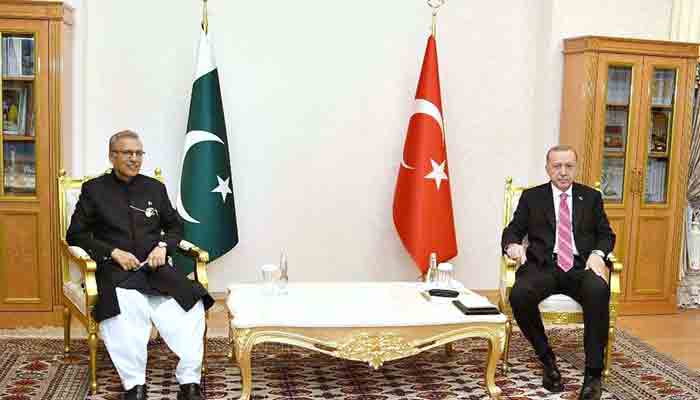
He said that in part, the global inflation in prices had been generated by the $27 trillion fiscal stimulus injected by the rich countries to revive their economies, as the developing countries had not been able to secure even a small fraction of the $4.3 trillion they needed to recover from the crisis.
Development agenda
The president called upon the ECO countries to join other developing countries in promoting a ‘common development agenda’ to return to the path of sustained and sustainable growth.
As the next chair of the Group of 77 and China, Pakistan will propose such a development agenda, including debt restructuring, redistribution of the new SDRs to developing countries, larger concessional financing, mobilisation of $100 billion in annual climate finance by the developed countries, ending the billions in illicit financial flows from the developing countries and the return of their stolen assets, and the creation of an equitable and open trading system and a fair international tax regime, he said.
He later invited ECO member states, also the OIC members, to attend the next OIC Foreign Ministers’ Conference in Islamabad on March 23, 2022. He emphasised the ECO’s contribution to reversing the rising tide of Islamophobia in Europe, North America and South Asia.
Pakistan relied on fraternal ECO and Islamic countries to support the exercise of the right to self-determination by the people of Jammu and Kashmir, they were in misery reeling under India’s illegal occupation and facing unspeakable oppression, he said.
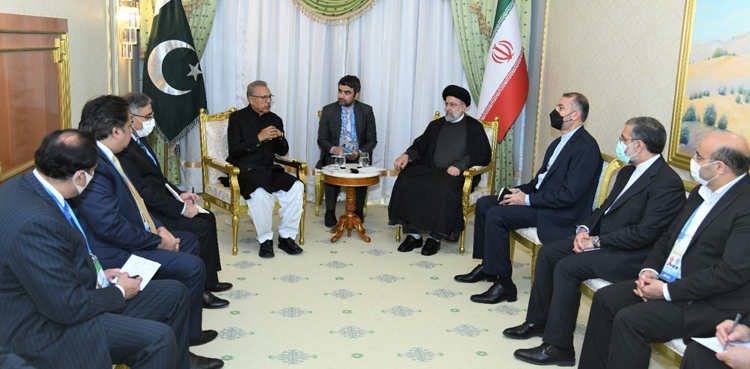
Wishing success to Turkmenistan’s ECO chairmanship, the president said Pakistan looked forward equally to Uzbekistan as the next ECO chair.
Trans-Afghan railway project
Also on the sidelines of the ECO Summit, President Alvi held a bilateral meeting with his Uzbek counterpart Shavkat Mirziyoyev wherein he reaffirmed Pakistan’s full support for the Trans-Afghan railway project and assured all possible cooperation for its early realization.
While the talks covered the entire spectrum of bilateral cooperation, with a special focus on trade and economic ties as well as connectivity agenda, Mr Alvi underscored the significance of operationalising Uzbekistan-Pakistan Transit Trade Agreement. He also highlighted the need for immediate provision of humanitarian assistance for Afghanistan and de-freezing of its financial assets to avert an economic collapse in the country.
Both leaders agreed to work closely towards enhancing cooperation in regional and international fora.
Mr Alvi reiterated the invitation to President Mirziyoyev to visit Pakistan at his earliest convenience.
In a separate meeting on the sidelines of the summit, President Alvi and President of Turkey Recep Tayyip Erdogan agreed to enhance not only bilateral trade and economic cooperation but also strengthen the ECO to achieve its objectives.
Mr Alvi appreciated Turkey’s principled stance on the issue of Kashmir and said there was a need to work together to tackle the challenges faced by the region.
The two leaders underlined the need for collective efforts of the region, particularly of the Islamic countries, to stop Islamophobia.
In his meeting with Iranian president Seyed Ebrahim Raisi, President Alvi thanked Iran’s consistent support to the Kashmir cause, particularly from the Supreme Leader Ayatollah Seyed Ali Khamenei.
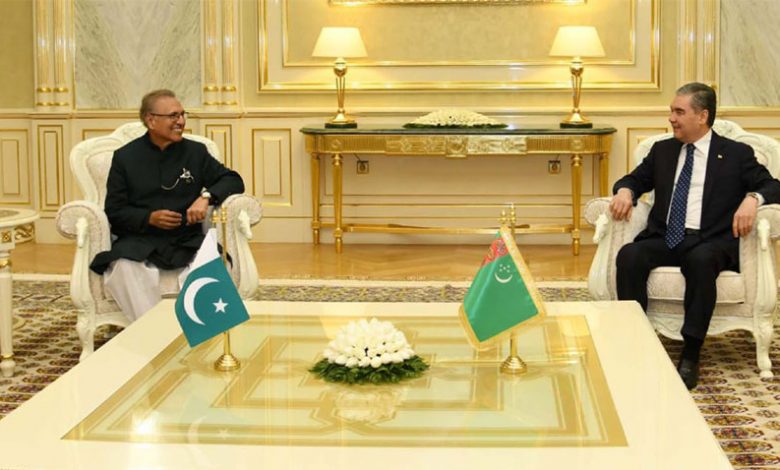
Mr Alvi also noted the increased convergence of views between the two countries on regional situation, particularly in the context of Afghanistan, and called for closely coordinated approach to achieve shared objectives of a peaceful, stable and prosperous Afghanistan.
President Alvi highlighted that Pakistan accorded highest priority to geo-economic prosperity and regional connectivity agenda. He underlined that Pakistan considered Iran as an important Muslim neighbour and brother based on deep-rooted historical, linguistic, religious and cultural linkages between the two countries. He underscored the importance of regular convening of bilateral mechanisms between Pakistan and Iran for trade and economy, also emphasizing the utilization of barter trade mechanism.
Shipments to Turkey
He expressed satisfaction at the recent operationalisation of International Road Transport (TIR) shipments from Pakistan to Turkey and Azerbaijan, which would be beneficial for the entire ECO region.
The two leaders expressed satisfaction on the regular high-level interactions, which had reinforced different avenues of bilateral cooperation. They agreed to stay engaged on all issues of mutual interest.
President Alvi earlier congratulated President Raisi on assuming the office after his victory in recent elections. He invited President Raisi to Pakistan at his earliest convenience.
President Alvi and his Tajik counterpart Emomali Rahmon in a meeting on the sidelines of the ECO summit reaffirmed commitment to continue joint efforts for further solidification of their close ties.
The two leaders expressed satisfaction on existing state of bilateral cooperation and reviewed state of implementation of CASA-1000 power transmission line project and resolved to its early completion.
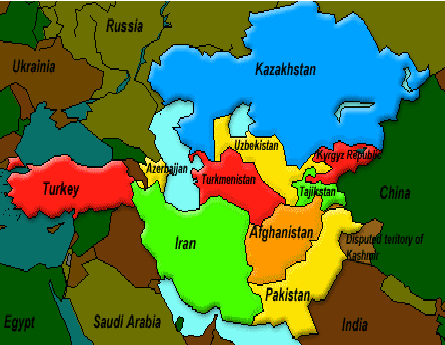
Mr Alvi appreciated the momentum of high-level exchanges including the visit of Mr Rahmon to Pakistan in June 2021, followed by Prime Minister Imran Khan’s visit to Tajikistan in September. He highlighted prospects of regional integration and connectivity to Tajikistan and Central Asian countries through Pakistan’s seaports.
The two leaders discussed in detail the regional challenges faced by both Pakistan and Tajikistan due to deteriorating humanitarian situation in Afghanistan. Mr Alvi said the neighbouring countries would be affected the most from instability in Afghanistan and apprised Mr Rahmon of Pakistan’s efforts for peace and stability and to mobilise international support to avert humanitarian crisis in Afghanistan.
The de-freezing of Afghanistan’s financial assets was crucial in preventing economic collapse in the country, he said, while also underlined the imperatives of inclusiveness, respect for rights of all Afghans, and ensuring that Afghan territory was not used against any country.
President Alvi stressed the importance for both Pakistan and Tajikistan to work together to advance the shared objectives of peace and stability in Afghanistan. He observed that sustainable peace in Afghanistan would help unlock the vast trade and economic potential in the region.
In a separate meeting, President Alvi and President of Azerbaijan Ilham Aliyev exchanged views on bilateral ties, trade and economic cooperation. The president also congratulated Mr Aliyev on the recovery of Azerbaijan’s territories from foreign occupation.
The two leaders agreed to further strengthen bilateral ties and cooperation at the regional and international forums.
Media person and communication expert for over 25 years. Worked with Dow Jones News, World Bank, CNBC Pakistan, Aaj TV, ARY TV, Abbtakk TV, Business Recorder, Pakistan Observer, Online News Network, TTI Magazine and other local and world Publications.


